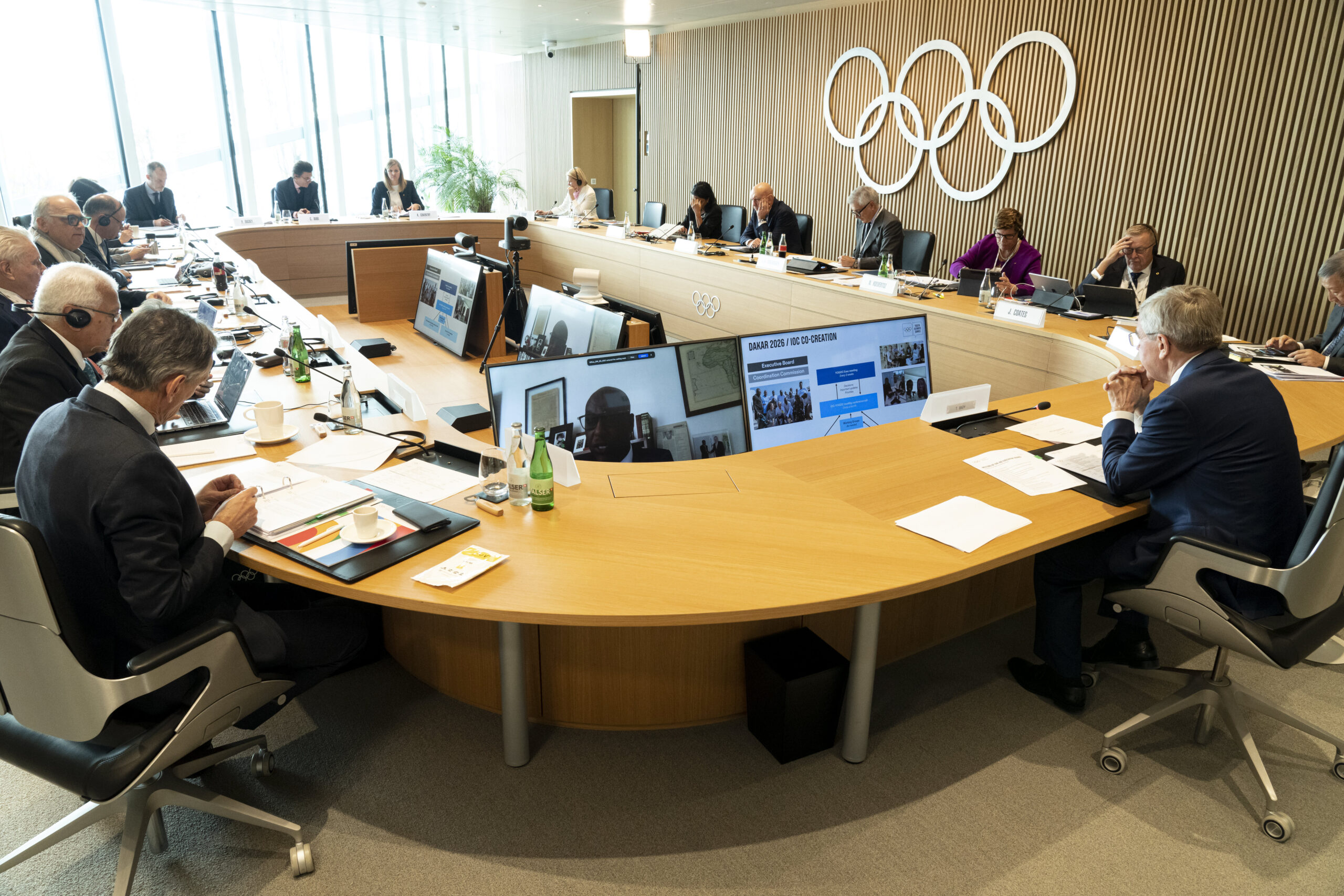
After another week of International Olympic Committee executive board meetings, when President Thomas Bach met the media on Thursday, there were plenty of questions about the upcoming 2024 Summer Games in Paris — but not concerning the host. Here are four takeaways from the Olympic scene.
Delaying a 2030 Decision
The biggest news was the IOC’s announcement that it will not announce a host for the 2030 Olympic and Paralympic Winter Games until 2024, leaving Salt Lake City, Sapporo and Vancouver waiting longer than expected before finding out which city would host the event.
Salt Lake City’s biggest obstacle for 2030 is the IOC’s reluctance to stage the Olympics in the United States less than two years after the 2028 Summer Games in Los Angeles — a reluctance shared earlier this year by the USOPC. An ongoing corruption scandal in Japan related to the 2020 Games in Tokyo lingers over Sapporo’s bid. And given NBC’s broadcasts drew the smallest TV audience in its history, having 2030 in Asia would probably not be well-received by the broadcaster whose contract is the majority of the IOC’s annual revenue.
For its part, Vancouver is scrambling to secure financial backing after British Columbia declined to pledge more than $1 billion. IOC Executive Director Christophe Dubi reacted negatively when asked if the IOC would cover some of Vancouver’s potential costs to avoid a budget catastrophe, saying “the responsibilities are incredibly clear and established by the host contract. … the IOC cannot be responsible for a deficit for which it has no responsibility over.”
Dubi added Wednesday he is not concerned over an announcement delay because “(the three bids) have hosted Games in the past and they have the venues, they have the expertise as well hosting competitions not day-in, day-out but winter-in, winter-out.” But the clock is ticking and our analysis today is the same as it was in September: Salt Lake City is the safest bid for 2030 if the IOC had to make a decision today. This week’s announcement gives the other candidates the time they need to get things straightened out with an eye toward giving one of them the Games instead.
No More Winter Bidding
Equally interesting news out of the Future Host Commission was the idea to study the potential for a rotating set of Winter Olympic hosts because of the impact of climate change on suitable locations. Reports on the eve of the Beijing Games noted that at the current rate of global warming, by the 2080s only Sapporo would have a climate cool enough to host the Games.
If the 2015 Paris Climate Agreement is followed, according to Daniel Scott, lead researcher for the University of Waterloo’s report, up to nine former Winter hosts would still have the necessary climate. The idea of rotating hosts — even before factoring in climate change — has merit given the Winter Games’ narrow audience compared to the much larger Summer Games. The biggest immediate question is how many hosts could be in the rotation.
The next question after that: Why limit potential future hosts to one city when a whole country — or countries — could be an option? Why wouldn’t the 2046 Winter Games in the U.S. be not just in Salt Lake City, but Salt Lake and Lake Placid? Or — let’s say in 2050 — a Winter Games co-hosted by Salt Lake and Vancouver? Norway loves its winter sports but the Games have outgrown Lillehammer and Oslo as a single site host — what about the country hosting in 2042? If the IOC is serious about coming up with innovative solutions, the possibilities are intriguing.
Deadline Looms For Russia
The other big issue on the IOC’s agenda was Russia, with some international federations planning their qualifying processes for the 2024 Game while IOC sanctions on Russian and Belarussian athletes remain in place.
The IOC’s call in February after Vladimir Putin’s invasion of Ukraine — among other sanctions — was to remove athletes from Russia and Belarus from competition. With qualifying events on the horizon, the IOC this week said “sanctions must remain firmly in place” but also there was debate “for several hours about the participation of athletes with a Russian or Belarusian passport in international sports competitions.”
Bach’s comments this week were in line with those made earlier this fall. But with Putin showing no signs of stopping, the IOC will with each passing week be closer to having to make a final decision. For several international federations, that decision is easy; World Athletics President Seb Coe said last week Russia’s path to Paris “is fairly simple. Get out of Ukraine.”
Bach said the IOC’s dilemma is “how can we avoid sport being fully politicized and being taken over by political interests because these are two different areas of our society.” What he’s really saying is the IOC wants to stick to sports. It’s increasingly obvious Putin plans on forcing the IOC’s hand on the issue.
Boxing Not Knocked Out Yet
Once referred to as a “problem child” by Bach, the International Boxing Association’s behavior has led to concerns over boxing’s future at the 2028 Games in Los Angeles.
The IOC sent yet another letter to the IBA recently about boxing’s future in the Games. The chances of the IBA changing its ways are zilch — its president is Russian, its biggest sponsor is Russian, it has been openly dismissive of the IOC and it may be the most corrupt organization in international sports (which is saying something).
The IOC will organize the boxing tournament in Paris, which it also did in Tokyo. It does not want to organize a boxing event in Los Angeles but seems to want the sport to remain given its participation in the Games since 1904, plus the historical U.S. success (Muhammad Ali, Joe Frazier, George Foreman and Sugar Ray Leonard to name a few have won golds).
“This is not so much about boxing and the boxers but about the government of this sport,” Bach said. “… the governance of their federation stands in their way.”
At this point, the sport’s best chance of survival is a new international federation supported by the IOC. How that is done and which countries take the lead will be one to watch.






























 Copyright © 2025 by Northstar Travel Media LLC. All Rights Reserved. 301 Route 17 N, Suite 1150, Rutherford, NJ 07070 USA | Telephone: (201) 902-2000
Copyright © 2025 by Northstar Travel Media LLC. All Rights Reserved. 301 Route 17 N, Suite 1150, Rutherford, NJ 07070 USA | Telephone: (201) 902-2000